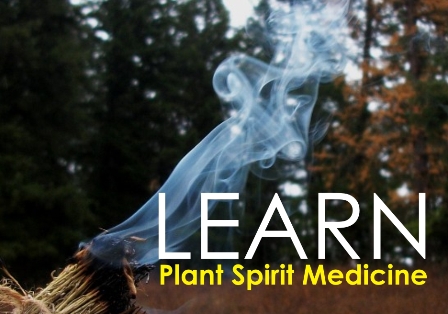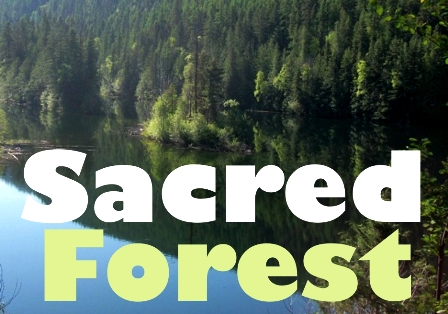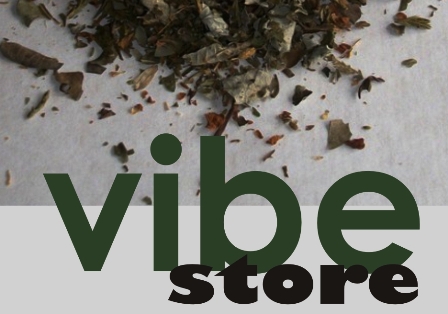contact the forest
250.547.2001
REGISTRATION
Alchemy Certification Training
Full Semester Series Program Cost: $2600.00 (Canadian Dollars)
You may register using this secure Paypal link:
Wildcraft Forest School - Camp Programs
Alchemy
Certification Training in
Historical and Contemporary Alchemy
Delivered within a 14 month semester program featuring online and in-person training
This Alchemy program presents the historical practices of alchemy which aimed to transform materials, create elixirs, and achieve spiritual enlightenment, contributing to the development of modern chemistry and herbalism. This program offers a contemporary approach to the ancient wisdom that first defined alchemical practice.
Alchemy might be described as the study of the sciences within a spiritual framework that includes nature-based ethics and a connection to the greater Cosmos. Teachings focus on the practice and philosophy of ancient and medieval alchemy, which sought to achieve transformations through various methods such as the transmutation of base metals and creating Panaceas capable of curing all ills. The approach that this program takes is a balance between supernatural practices, realism and the metaphorical.
Knowledge of Alchemical practices can offer intuitive methods which can lead to advancements in practical chemistry, healing, art, design, economics, community and stewardship. This program also involves an understanding of Alchemy’s relationship with traditional herbalism, healing and energy work, where plants and their energies along with methods and exercises are seen as tools for healing and transformation within individuals, families, places, communities and organizations.
Training in Alchemy offers a path for personal and spiritual transformation, enabling one to achieve a deeper understanding of themselves, heal emotional wounds, and align with a higher purpose.
Beyond the historical material goals of transmuting metals, achieving health, or extending life, alchemical training was primarily a spiritual journey to refine the soul, discover the divine within, and attain unity with the cosmos.
Alchemy is important today because it was a precursor to modern chemistry and medicine, introducing foundational techniques like distillation and metallurgy. Its experimental methods, practical applications, and even its philosophical underpinnings — the idea of transforming substances and the pursuit of knowledge — continue to resonate in scientific inquiry and in spiritual or personal growth, as seen in the modern concept of transforming oneself to achieve a higher state of being.
This program is delivered within a 14 month Semester Cycle that repeats every year. Teachings are delivered through a series of online lessons, virtual conferences and in-person camps. Upon successful completion of the program, participants receive certification in the Alchemical Arts as an Alchemical Practitioner.
Who should take this program?
This certification program includes medicine and substance preparation as well as methods for approaching value-added opportunities as a business or service. The series also includes processes within historical alchemy methods. The series also leads participants into an advanced understanding of plant spirit medicines and species relationships that support regenerative stewardship.
Participants are trained to deliver a number of multi-session programs in what we call Forest Biotics, one for children and youth; youth at risk; seniors and for wellness groups. This training provides good opportunities for expanding existing workshop and special event programs.
This program offers participants a chance for positive and meaningful personal growth and is a great way to learn about better health and lifestyle choices and gives participants a chance to explore pristine environments and capture unique skills. Certification can assist researchers, scientists, leaders and healers with methods that will help them in both career and self-employment endeavors. This training is well suited for those working in the fields of education, healthcare, food, nutrition, healing, theology, design and community development.
DETAILS
Semester 1 – Introduction to
Spiritual Ecology and Alchemy
At the start of this program is a conference with the participant that explores their various areas of interest and why Alchemy might be important to their mission. This introduction process includes lessons which outline the teachings and philosophical approach. Scheduling of Semester Sections and key events will also be discussed. This semester address very basic processes of natural systems and blends scientific processes with spiritual ecology, the semester learning nodes are as follows:
Creating Kinship with Nature
- Applied Sciences and Alchemy
- Plants and Ecology Studies, understanding values found in nature.
- Basic Plant Identification, Harvesting and Stewardship Methods
Relationships
- Nature to Person Communication
- Energy and Frequency
- Biosemiotics, Microbe Studies
- Mother Tree Studies and Stewardship
- Living Air, Water and Earth, Biosemiotics, Microbe Studies
- The Context and Application of Plant Spirit Medicine and Alchemy
Intuitive Skills
- The Cosmic Tree and Plant Spirit Guilds
- Plant deities, Ceremonial Protection and Sacred Practices
- The Nature and Methods of Ecstasy and Soul Travel
- Nature-based Meditation Methods
Semester 2 – Alchemy Basics
Semester 2 offers historical background, ancient context as well as important aspects as to the nature of Alchemy as a practice that includes a number of different areas of study. The outline is as follows:
What is Alchemy?
- Introduction to the Program and Context
- Orientation and Exploration
- Dangers and Protection
- Meditations and Exercises to Create Formation
Alchemy in History
- Teachings from 1000BC to Present
- Developing a Thesis Your Present Moment
- Finding Your Story
- Understanding the Scope of the “Book of Secrets”.
Ancient Alchemy and Ancestral Connections
- Ancient and Primordial Teachings
- Ancestral Mapping
- Energy and Frequency
- Dragon Veins and Vortices
Magnum Opus
- “The Great Work”
- Science and Spirit in a Quest to “Know”
- Lectures and Studies of Alchemical Works
Anima Mundi
- The Inner Nature of the World
- Understanding the Soul of the World and the Cosmos – and God
- Cosmic Elementals
- Inter-Dimensions
- The Mysteries
- Intuitive Arts
- Light in Darkness / Sun and Moon
Prima Materia
- Understanding the Primordial Earth and the First Matter
- The Beginning
- Alchemical Science
- Contemporary Science
- Physics and Metaphysics
Personal Legend
- Finding and Developing Life Purpose and Mission
- Fate, Chance and Destiny
- Exercises and Discussion Circles
- Alchemical Challenges
The Philosophers Stone
- Move into Action
- The Vision Quest
- “My Legend”
- Story of Self and Soul
The Elixir of Immortality
- Creating Transformation and Transmutation
- The Nature of Ceremony
- The Nature of Power
- The Nature of Prayer and “Good Work”
Semester 3 – Alchemical Processes and Tools
Semester 3 emerges participants within the practical application of processes which then require tools and an understanding of how ideas and research are kept that include elements of intuition. Learning nodes are as follows:
Magnum Opus in the Book of Secrets
- Elements of Protection and Projection
- Lab Assignments: Anima Mundi, Prima Materia, The Philosophers Stone, The Elixir of Immortality
There are six areas of mission, exploration or occupation within Alchemy. We will spend significant time and effort to explore each of these “Processes” which include lab challenges. This semester plays a critical role as participants define their area of interest within the wider program and their long-term mission objectives. The six areas of study are as follows:
- Universal Panacea
- Medicinal and Substance-based Alchemy
- Structural Alchemy
- Social Alchemy
- Spiritual Alchemy
- Cosmic Alchemy
We will explore Alchemical tools within the context of each of the Processes.
- Sanctuary and Studio
- Tools and Equipment
- Heat
- Metal
- Clay
- Glass
- Hot / Cold
- Other Alchemical Tools
Cosmic Tools
- Sacred Places
- Symbols and Motion
- Cloak of Invisibility
- The Wand
- The Walking Stick
- Prime Meridian Cycles
Semester 4 – Elements and Elementals
Alchemy presents practical, chemical-focused goals supported by deeper philosophical and spiritual aims to understand and perfect aspects of the natural world while seeking a universal truth or essence of matter to improve humankind's place in the cosmos. In this semester we explore both Elements and Elementals that include a variety of lab challenges. An outline for this semester is as follows:
Understanding Elements and a close examination and exploration of each element that include:
- Terra / Earth
- Aqua / Water
- Aer / Air
- Ignis / Fire
- Aether
- Quintessentia Void / Balance
- Biotic and Abiotic Intelligence and Spirit
- Understanding Elemental Presence
Semester 5 – Mentorship Challenges
In Semester 5 participants are encourages to develop their own Magnum Opus which is a thesis that outlines the area of Alchemical expertise that they wish to develop their meaning and purpose. Base on their discoveries they will enter into a conference to discuss a practicum and intern process where they will explore Alchemy in practical work and research environments.
In this process they will be challenged to move their studies and experiences into four stages of further Alchemical study. These stages can reflect work within the Universal Panacea, Medicinal, Structural Alchemy, Social, Spiritual and Cosmic areas of Alchemy. The Stages are as follows:
Calcination
Calcination, the first stage of Alchemy, is also known as the black stage. The color black represents chaos, that which is hidden and buried, and the material of the unconscious. It also refers to the Materia Prima, an idea in occult sciences that all matter in the universe emerged from an original, primitive base.
Dissolution
Dissolution in the second stage of practice involves dissolving the ashes in water. Water could be interpreted as a symbol for the unconscious, which contains the hidden parts of ourselves that we have been afraid of and up until now have not been explored. Dissolution can be understood as the stage in which we free ourselves from our inauthentic and acquired sense of identity.
Separation
In the separation stage, the pure essence is extracted from the rest of the mixture. As the first two stages were associated with fire and water, separation is related to the air element. In a spiritual sense, it can be understood as a separation from one’s habitual thought processes or emotional trigger responses, allowing us to step back and distinguish our essence from our acquired personality.
Conjunction
Conjunction refers to the process of combining the elements from the previous three stages. In a sense, we see what still remains within us, which is of value, and then begin to combine these elements to form one’s authentic spiritual self. After the first three stages of purification by fire, water, and air, our disparate elements are brought together under the earth element. We begin a process of embodiment as the process of materialization takes place.
Fermentation
Putrefaction, or fermentation, is the fifth stage and describes the decay of the old ones and the re-creation or rebirth of the new. The first four stages involved discarding the old and dysfunctions and drawing together the authentic elements found in nature and the cosmos. This stage can be likened to the rebirth of the Phoenix from its own ashes and into something new.
Distillation
The distillation stage is the stage when all of the impurities are removed, and there is nothing left but the essence. In chemistry, distillation involves boiling and condensation to separate components and is commonly used in desalination. A liquid is boiled until it evaporates, and as the steam condenses, the essence is liberated from the matter. It marks the point at which our essence becomes spiritualized. In other words, distillation is a metaphor for the actualization of spirit.
Coagulation
The final stage is coagulation, which describes the process of solidification where one’s essential self becomes whole. Coagulation refers to the process by which a liquid, typically blood, solidifies. It occurs when we are cut to form a scab. In spiritual alchemy, coagulation involves the solidification of our true self and can be likened to healing from a wound as we feel ourselves to be independent and complete.
Upon completion of the practicum and intern process the participant will be challenged to create a thesis that supports their area of experience and research. Upon successful completion, a conference is scheduled where certification can be determined.
This program is delivered within a 14 month Semester Cycle that repeats every year. Teachings are delivered through a series of online lessons, virtual conferences and in-person camps. For each semester, scheduling of virtual events and in-person camps are determined through a consensus process that includes participants and instructors. Upon successful completion of the program, participants receive certification in the Alchemical Arts as an Alchemical Practitioner. Intake dates for the program are listed below. The cost is $2600 (Canadian Dollars) per person.
- Please note that each Alchemy class has a minimum of 7 participants.
Intake Dates for Semester 1:
- November 5, 2025
- January 3, 2026
We will begin your training within 5 days of registration. You will be sent further program details and the first online lesson.
2026 In-Person Camp Dates:
Availability as of November 20, 2025
- July 24-26 - 3 Seats Remaining
- July 27-29 - 3 Seats Remaining
- July 30 – August 1 - 4 Seats Remaining
Camp attendance is optional and is included within registration fees. Attending a camp offers participants a great opportunity for hands-on learning. When a participant completes this program they can attend future camps at no charge providing that there is space available.
REGISTRATION BY SEMESTER SERIES
Alchemy Certification Training
If you would like to take this program at a slower pace you can register by semester series.
- Register for Semesters 1 and 2 - $1200.00
- Register for Semesters 3. 4 and 5 - $1800.00
You may register using these secure PayPal links:
Alchemy Certification Training
Semesters 1 and 2 - $1200.00 per person
You may also register by Interac or
Wells Fargo Transfer. Send us an email and we will send you instructions.
- Retreat Accommodation is Included
If you have questions please email us or call 250.547.2001
Alchemy Certification Training
Semesters 3, 4 and 5 - $1800.00 per person
You may also register by Interac or
Wells Fargo Transfer. Send us an email and we will send you instructions.
- Retreat Accommodation is Included
If you have questions please email us or call 250.547.2001








